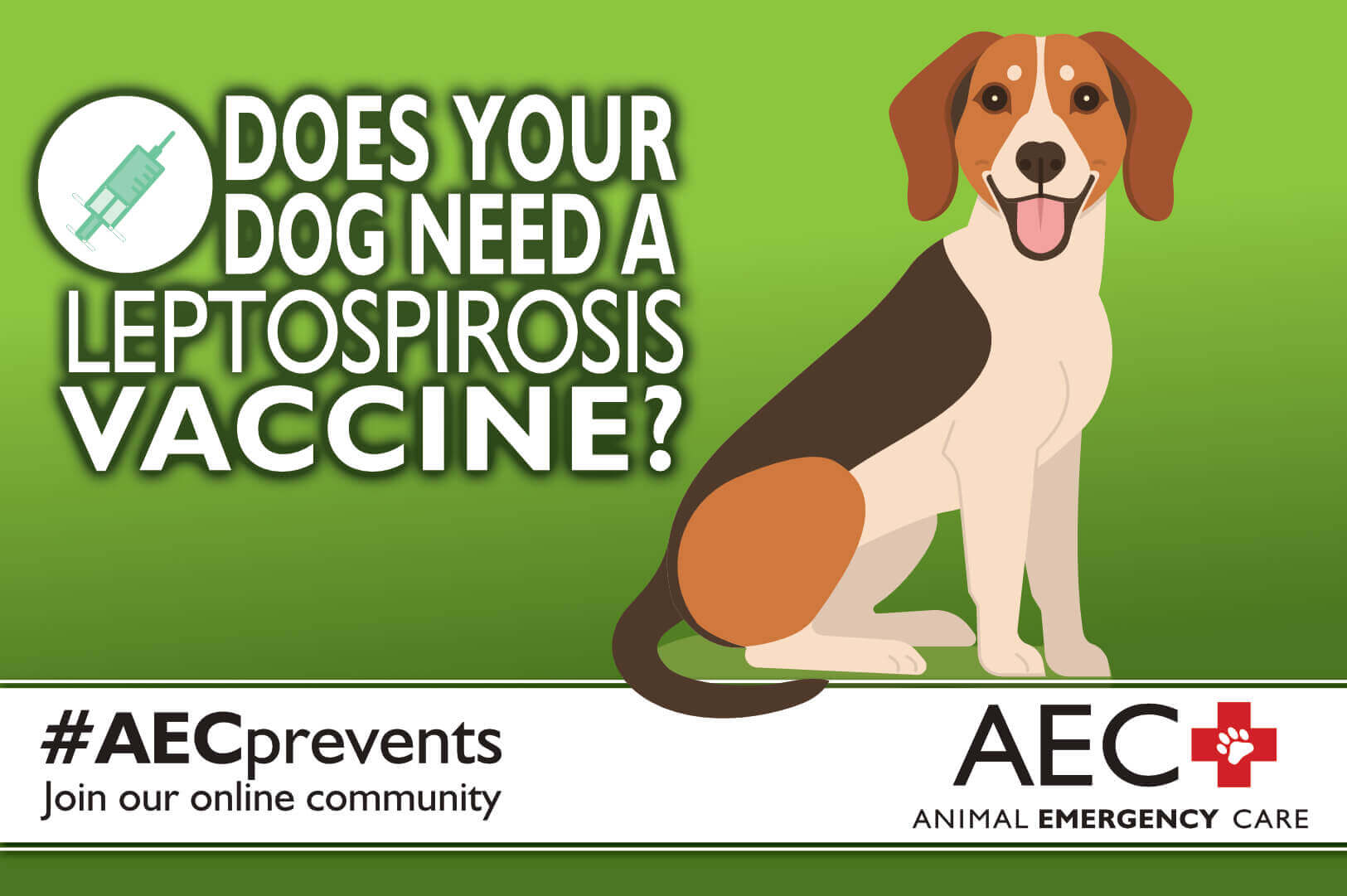Outdoor adventures with your favorite furry pal require planning and preparation to ensure you have all the necessary supplies to stay safe and have fun. You may need specialized leashes or harnesses with packs for your dog to carry their water bowls and snacks when you head outdoors with your pup. You will also need to ensure your dog has their core vaccinations such as rabies and distemper that will protect them from wildlife and other canine friends. Your family veterinarian may also recommend non-core vaccinations such as leptospirosis. Our Animal Emergency Care team dives deep into leptospirosis to ensure you understand why your veterinarian may recommend this important vaccine.
What is leptospirosis in dogs?
Leptospirosis is a serious life-threatening blood infection caused by spiral-shaped bacteria referred to as spirochetes. This infectious bacteria has many species, although fewer than ten species or serovars threaten animal health. The bacteria live in slow-moving or standing water such as a puddle after a rainstorm but can survive for months in the soil after the water has cleared. Dogs serve as the primary host for this bacteria although many other mammalian species, including humans, can be infected. Dogs of any age, breed, or sex are at risk of becoming infected. Wildlife such as raccoons or rats often spread this bacteria through their bodily fluids, especially their urine. Dogs commonly become infected from:
- Drinking contaminated water
- Swimming or stepping in contaminated water with cut paws or irritated skin
- Bite wounds
- Eating infected tissue
Leptospirosis signs in dogs
Leptospirosis spreads quickly through the bloodstream of infected dogs but can take up to a week before any disease signs are present. The bacteria initially inflames the blood vessels as they travel through the body but can affect any organ system. Some form of kidney damage occurs in more than 87% of infected dogs. Clinical signs can vary from mild to severe and include:
- Fever
- Muscle stiffness and pain
- Bruising
- Bleeding
- Poor appetite
- Weight loss
- Yellowing skin (i.e., jaundice)
- Tissue edema
- Abdominal pain
- Cloudy eyes
- Vomiting
- Lethargy
- Increased, decreased, or absent urination
- Dehydration
Dogs whose lungs become infected with these spirochetes are at risk of developing leptospiral pulmonary hemorrhagic syndrome which is a fatal condition in more than 70% of cases. Some animals who become infected with leptospirosis will also have irreversible immune problems and chronic kidney or liver disease regardless of treatment.
Leptospirosis diagnosis and treatment in dogs
Bring your dog for immediate veterinary care if they show leptospirosis signs after exposure to wildlife or standing water. Your family veterinarian will discuss your dog’s history and perform a thorough physical examination, and may recommend several blood and urine tests including:
- Complete blood count (CBC) — This test will help evaluate whether your dog has an infection or any internal bleeding.
- Serum chemistry —This test is important to evaluate the health of the kidneys, liver, and other organs.
- Electrolytes —Many dogs with this infection become dehydrated and have imbalanced electrolyte levels.
- Serologic tests — These blood or urine tests will aid in determining if signs are consistent with leptospirosis.
Your dog will likely need to stay in a veterinary hospital for several days depending on the severity of illness related to leptospirosis. Fortunately, this infection is extremely responsive to antibiotic therapy, but your dog will need additional care to treat the bacteria-associated illnesses. Leptospirosis treatment may include:
- Intravenous (IV) fluid therapy
- Pain medication
- Anti-nausea medication
- Gastrointestinal protectants
- Liver support medication
Dogs diagnosed with leptospirosis will need antibiotics for at least two weeks and will likely need follow-up appointments to monitor for any long-term organ damage. You must always wear gloves when handling your infected dog until your family veterinarian confirms the infection has been cleared from their system.
Financial planning for dogs undergoing treatment for leptospirosis
Treatment and post-recovery monitoring of dogs infected with leptospirosis can be expensive. Pet insurance plans like Trupanion Express have policies available to alleviate the financial stress of an unexpected illness and hospitalization. However, you must research and choose a plan before your dog needs urgent care and treatment. Many financial institutions also offer pet health savings accounts which also are a great way to plan ahead for unexpected and costly veterinary treatment. Alternate payment methods such as Care Credit, Scratch Pay, and short-term bank loans can also alleviate your concerns about paying a large unexpected veterinary bill by allowing you to spread out the payments.
Preventing leptospirosis in your dog
Vaccination against the most common leptospirosis serovars is the most effective way to prevent any associated clinical illness in your dog. Other prevention methods include:
- Avoiding areas of standing water
- Controlling rodents and other wildlife around your home and immediate environment
- Avoiding letting your dog swim in lakes around heavily wooded areas
- Designating a specific location for your dog to eliminate while undergoing treatment
- Ensuring your dog does not eat wildlife
Call our office if your dog has signs consistent with leptospirosis or you are worried they may have contacted contaminated water. We recommend having your dog vaccinated with your family veterinarian to prevent this potentially deadly infection. #AECprevents
Sources:
https://veterinarypartner.vin.com/default.aspx?pid=19239&id=4951453
